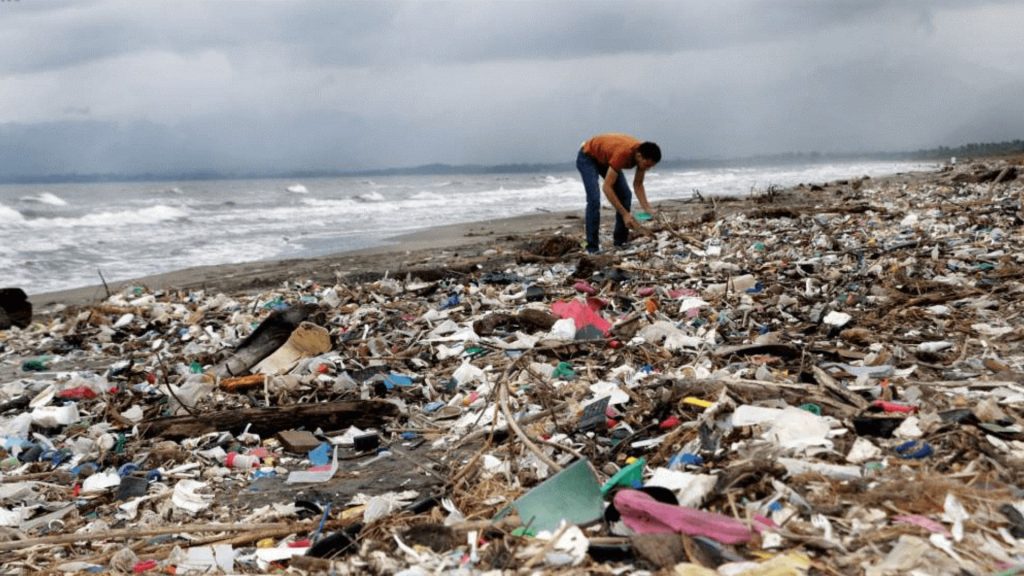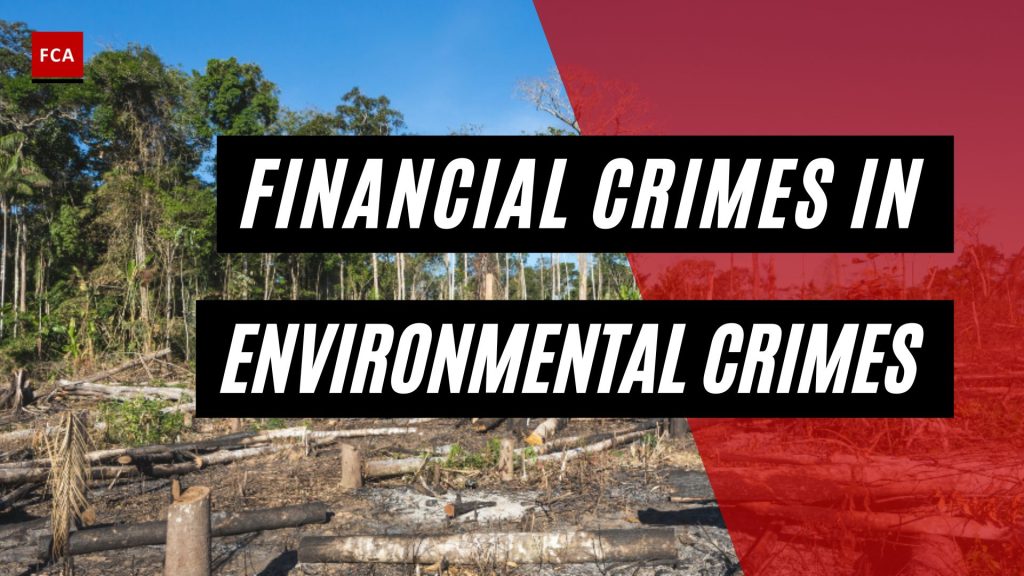There are financial crimes in environmental crimes. Environmental crimes can often be linked to financial crimes, as the perpetrators of environmental crimes may be motivated by financial gain or may seek to avoid the costs associated with compliance with environmental regulations.
Environmental crime is regarded as one of the most lucrative and rapidly expanding subsets of global crime. It’s estimated that up to 25 percent of the market for animals and plants takes place illegally. Environmental crime is predicted to increase by 5 to 7 percent yearly, which is 2 to 3 times the pace of development of the world economy.

The Related Financial Crimes in Environmental Crimes
According to a 2016 UNEP report, the yearly cost of green crime is approximated to be between 91 to 259 billion US dollars which includes the unauthorized income generated by green crime, the damage to lawful trade, and the lost tax income, a 26 percent upsurge from the previous approximation published in 2014. Environmental crimes are nothing new. However, their inclusion in the debate about preventing financial crimes is recent.
Environmental crime has several connections to other major offenses, frequently making preventative efforts, enforcement inquiries, and judicial actions more difficult. Environmental crime frequently occurs with other crimes, including murder, money laundering, passport fraud, and corruption, according to INTERPOL.
Environmental crime may generate large sums of money for organized criminals because it is primarily a cash economy. It bypasses regular financial institutions. It is challenging, if not impossible, to value the revenues of environmental crime because criminals “clean” their finances by passing the money via other, equally illegal networks. As a result, the money from environmental crime is complicated, if not unattainable, to value.
A wide variety of serious crimes have the potential to support environmental crimes. Most of these facilitating crimes, which include but are not confined to fraud, corruption, money laundering, tax fraud, embezzlement, bribing, cybercrimes, and forgery, have been repeatedly observed in various contexts. Still, only a small number have been systematically studied.
According to polls conducted by INTERPOL of its member state police forces, 84 percent of the nations questioned claimed that environmental crimes were related to other categories of major crimes, such as corruption, drug trafficking, counterfeiting, cybercrimes, and financial crimes. The majority of them fall under the category of “white-collar crime.”
Financial institutions invest in industries reliant on nature, like foods, forest produce, and infrastructure, whose profitability may be boosted by environmental crime. They also create ways for those who commit environmental crimes to hide their earnings. For instance, timber harvesting can increase the amount of land accessible for agricultural production, which reduces costs, boosts productivity, and enhances quality. Higher firm profitability and greater investor returns are the results. Although the investments are theoretically legitimate, the profits come partly from criminal conduct, making them illegal earnings that need to be controlled.

Environmental crime is said to be one of the most lucrative crimes in the world in terms of revenue, bringing in anything from 110 to 281 billion US dollars yearly. Two-thirds of this amount, or 66 percent, is accounted for by the three research focal areas: trash trafficking, illicit mining, and forestry crime. Well beyond financial cost, environmental crime has significant negative effects on the environment, public safety, individual security, and economic and social growth. Along with aggravating other major crimes like drug trafficking and slave labor, it feeds corruption.
Although estimates of the economic cost of environmental crimes vary greatly, research shows that the yearly financial impact of these crimes is tens of billions of dollars across all areas. Environmental crimes, except for waste trafficking, often occur in resource-rich poor and middle-income nations, with the proceeds coming from more developed, wealthier economies.
Many criminals focus on one or even more environmental crimes and use specialized networks to transport goods and assist the money flows. These networks can be as simple as cash couriers or as complicated as systems of front and shell corporations to transfer money. Environmental crime, however, may also be a component of a larger criminal organization that engages in various illegal acts. Such companies may commit environmental crimes alongside other crimes, such as human trafficking.
Transnational criminal groups frequently attack the financial system. Because of the large earnings and minimal enforcement, transnational organized criminal or TOC organizations have expanded their activities to encompass green crimes, notably environmental crimes. In 2019, the World Bank estimated that the yearly cost of these unlawful operations ranged from 110 to 281 billion US dollars. According to this statistic, environmental crime is the fourth most lucrative crime worldwide.

Criminal syndicates are infiltrating the financial system using simple and complex structuring tactics, with complex schemes including dummy businesses, middlemen, and several genuine organizations enticed into the supply chain. There is data that terrorist organizations, such as Hezbollah and Boko Haram, are also engaging in the environmental crime distribution chain, including in the warehousing and transit of items.
Final Thoughts
Overall, the financial crimes associated with environmental crimes can have significant economic and environmental impacts, and can undermine public trust in the regulatory system. Prosecution and punishment of these crimes can help deter future environmental violations and ensure accountability for those who prioritize profits over the health of the planet.









